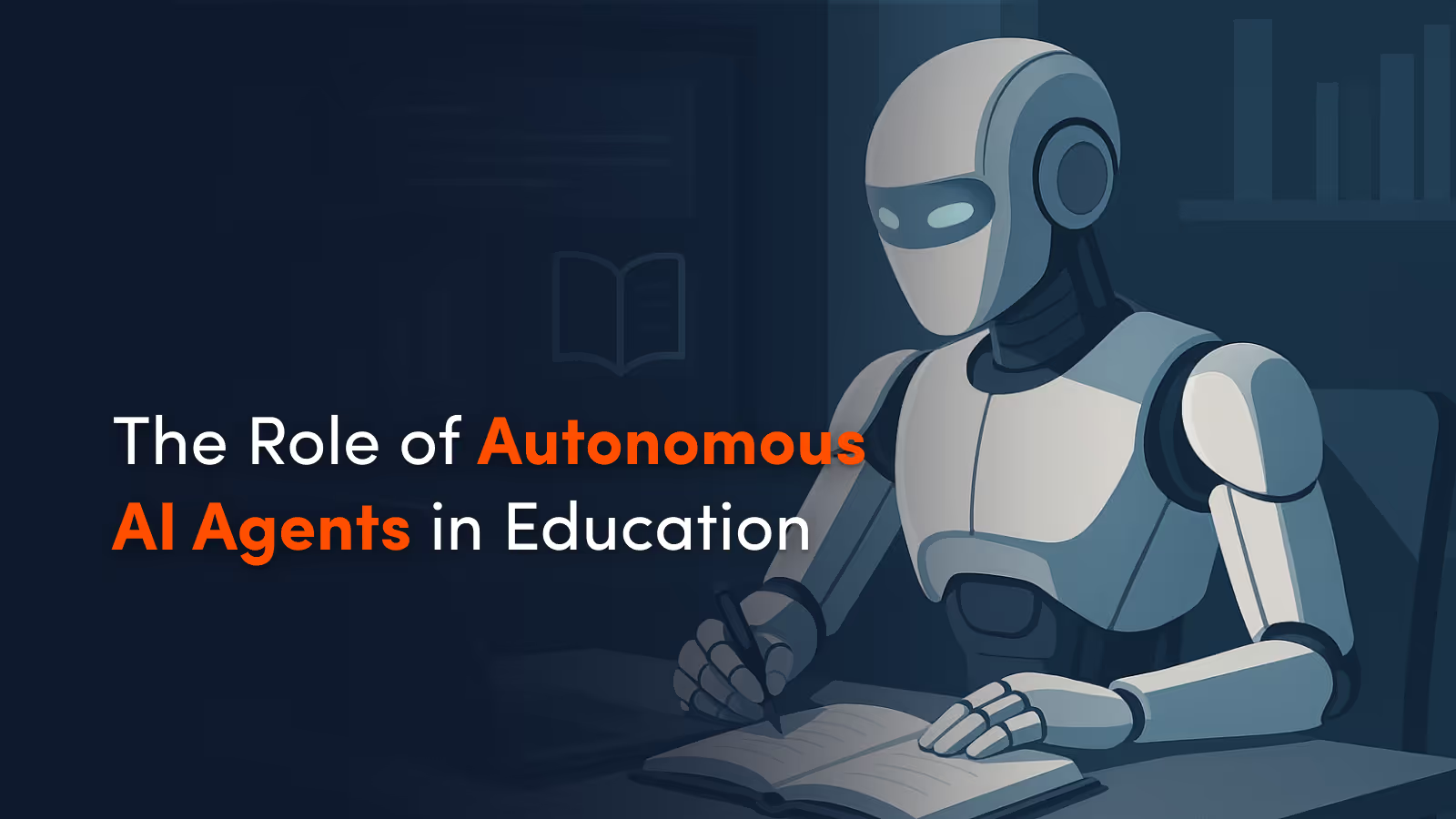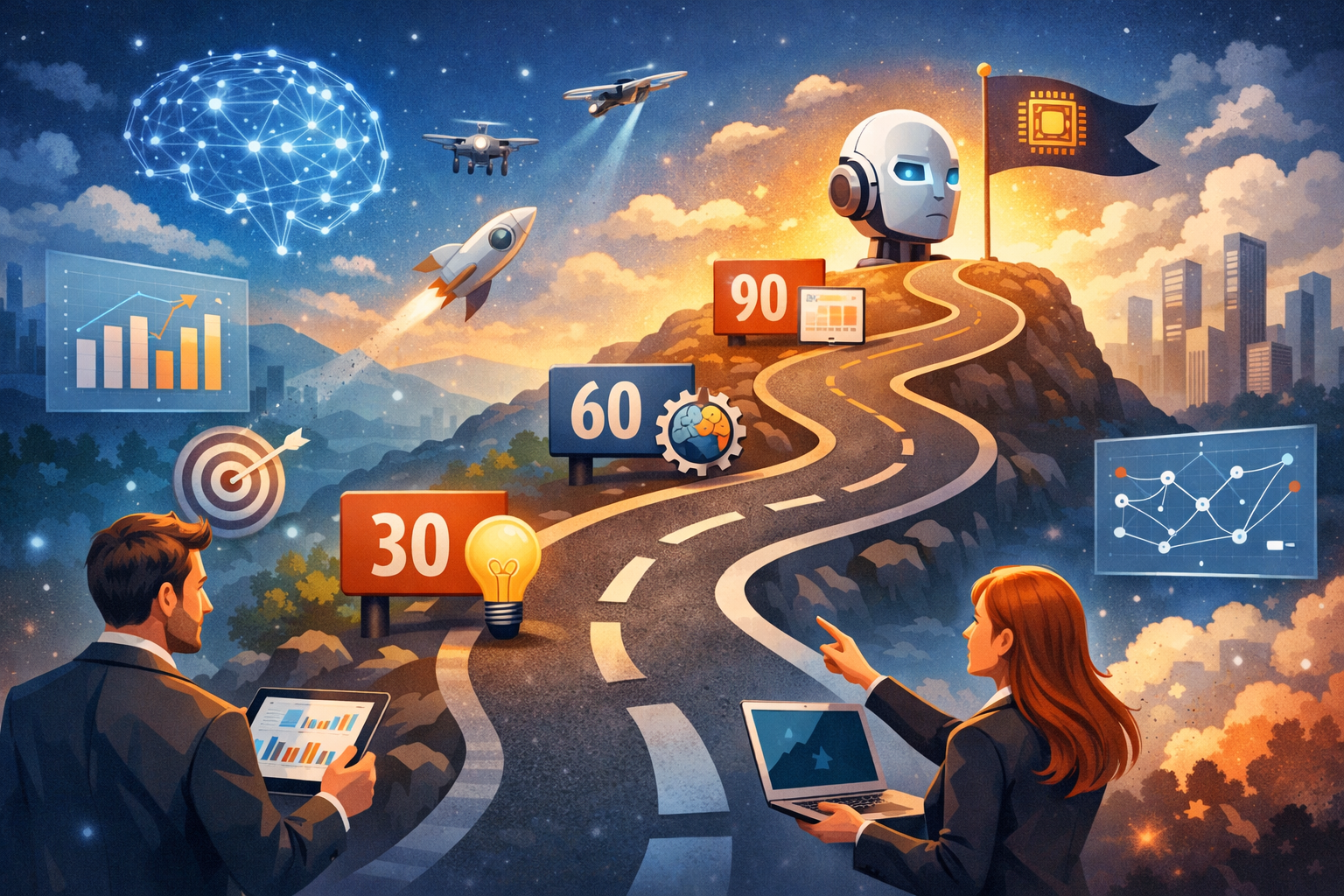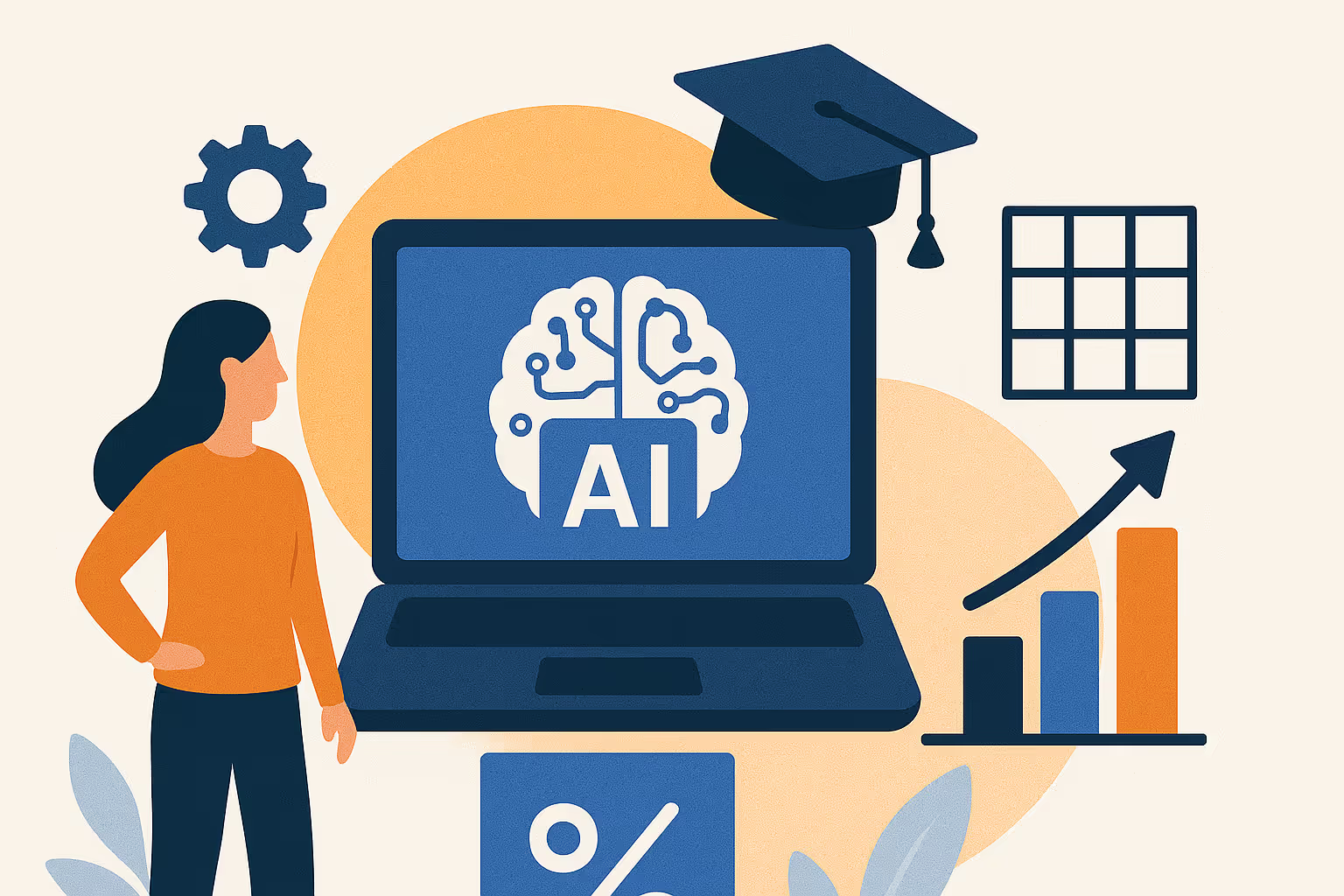About the Blog
Key Takeaways
- Autonomous AI agents are reshaping education by offering personalized learning, administrative support, and 24/7 student assistance.
- AI agents for higher ed are driving new efficiencies, boosting accessibility, and enhancing student engagement and outcomes.
- Despite clear benefits, schools must tackle challenges around data privacy, algorithmic bias, and overreliance on automation.
- Understanding emerging higher ed trends like Agentic AI and emotional AI is crucial for institutions preparing for the future of learning.
Introduction
Autonomous AI agents are systems designed to independently perform tasks, make decisions, and adapt without constant human input. Unlike standard AI tools that rely on direct instructions, autonomous agents act with a degree of self-governance—navigating problems, learning from outcomes, and optimizing their actions over time.
Today, autonomous AI agents are finding increasing application in education. From personalized tutoring bots to automated grading assistants, these tools are ushering in a new era of AI in higher education. In this blog, we'll break down what autonomous AI agents are, how they're being used across colleges and universities, and what the future holds for this powerful technology.
What Are Autonomous AI Agents?
An autonomous AI agent is a system that operates independently to complete tasks using artificial intelligence techniques like machine learning and natural language processing. Unlike traditional programs that wait for user commands, these agents can perceive their environment, make decisions, and execute actions without needing step-by-step guidance.
It’s important to distinguish autonomous agents from general AI. General AI refers to broad, human-like intelligence, while Agentic AI focuses on goal-driven, task-specific behavior within defined parameters. Examples of autonomous AI agents in education include intelligent tutoring systems that adapt to a student’s progress, chatbots that handle admissions inquiries, and grading tools that evaluate assignments with minimal oversight.
These agents are increasingly sophisticated, leveraging Generative AI to create personalized content, simulations, and feedback mechanisms. They are not just passive responders—they are active participants in shaping educational experiences.
Applications of AI Agents in Education
AI agents are finding their way into almost every corner of the educational experience. Some key applications include:
- Designing personalized learning paths tailored to each student's needs
- Offering administrative support for routine academic and operational tasks
- Acting as virtual teaching assistants to extend learning beyond classroom hours
While the specifics differ across institutions, the trend is clear: AI agents for higher ed are becoming indispensable partners in both teaching and administration.
Personalized Learning Paths
One of the most exciting applications of autonomous AI agents is the ability to create personalized learning paths for students. Rather than following a rigid curriculum, AI systems can dynamically adapt the pacing, difficulty, and content type based on each learner’s performance and preferences.
These adaptive systems use real-time analytics to fine-tune educational material, ensuring that students remain challenged but not overwhelmed. Whether it's customizing reading materials, suggesting practice problems, or pacing video lectures, AI agents deliver a truly student-centric experience.
Moreover, Generative AI plays a role in creating fresh, tailored content—meaning a student’s learning journey feels uniquely designed for them. This approach not only improves academic outcomes but also boosts motivation and retention.
Administrative Support
Beyond the classroom, autonomous AI agents are revolutionizing administrative processes. Institutions are deploying these agents to automate grading, manage course scheduling, and handle a wide array of student inquiries.
By automating these repetitive tasks, colleges free up faculty time for higher-value activities like research, mentorship, and creative teaching innovation. Boosting operational efficiency through smart automation also means that universities can do more with less—an increasingly vital advantage in today's budget-conscious environment.
Furthermore, AI agents can provide instant responses to student questions about deadlines, class changes, or financial aid, ensuring quicker, more consistent communication and enhancing the overall student experience.
Virtual Teaching Assistants
Virtual teaching assistants powered by AI are becoming an integral part of modern classrooms. These agents offer 24/7 student support, answering questions, clarifying assignments, and providing reminders, regardless of time zone or class schedule.
Virtual assistants can also manage administrative classroom tasks, such as collecting homework or setting up discussion boards. By taking on these routine duties, AI agents allow instructors to focus more on meaningful student engagement and creative lesson planning.
This 24/7 availability enhances learning opportunities, especially for online and non-traditional students who need flexible access to help and resources. In short, virtual teaching assistants are reshaping expectations for what accessible education looks like.
Benefits of Using AI Agents in Education
Adopting AI agents in education unlocks a range of significant benefits:
First, AI agents drive improved student engagement and outcomes by offering timely feedback, personalized learning experiences, and always-available support systems. Students feel more connected and supported in their educational journey.
Second, they enable increased accessibility and inclusivity. AI agents can tailor content for different learning styles, provide multilingual support, and even adapt for disabilities, helping institutions create more equitable learning environments.
Finally, AI agents deliver cost and time savings for educators and institutions. By automating labor-intensive processes and scaling support services, schools can allocate resources more effectively and focus on strategic priorities like curriculum innovation and student success.
Challenges and Ethical Considerations
Despite the advantages, there are challenges and ethical issues that institutions must address:
Data privacy concerns loom large as AI systems collect and analyze sensitive student information. Schools must establish rigorous data protection protocols to maintain trust.
Overreliance on automation is another pitfall. While AI agents can streamline operations, human oversight remains critical to ensure quality, fairness, and empathy in education.
Lastly, equity and bias issues in algorithms can exacerbate existing inequalities if left unchecked. Institutions must commit to regular audits of AI systems to identify and correct biases in their decision-making processes.
Future of AI Agents in Education
Looking ahead, higher ed trends point to even more sophisticated uses of AI. Emerging technologies like emotional AI—which detects and responds to students’ emotional states—and multimodal learning agents that integrate text, video, voice, and gesture inputs will redefine how students interact with educational content.
In the long run, AI agents could create hyper-personalized, dynamic learning environments that adjust to student needs in real time, making education more human-centered even as it becomes more tech-enabled.
For colleges and online platforms alike, investing in AI in higher education today means building the infrastructure for tomorrow’s more adaptive, inclusive, and engaging learning ecosystems.
Conclusion
Autonomous AI agents are no longer a futuristic concept—they're active agents of change in today's educational world. From personalizing learning to enhancing operational efficiency, these tools offer unprecedented opportunities to evolve the academic experience.
Yet, responsible adoption matters. Institutions must address ethical considerations around privacy, equity, and human oversight to fully realize the potential of AI. By doing so, they’ll be well-positioned to lead the next wave of higher education digital transformation.
Frequently Asked Questions
How do AI agents differ from traditional educational software?
Traditional software follows scripted rules, while AI agents can independently adapt, learn, and optimize decisions based on new information.
Can AI agents fully replace human teachers in the future?
No; AI agents are designed to complement, not replace, human educators by handling routine tasks and providing support, while teachers focus on mentorship and critical thinking development.










